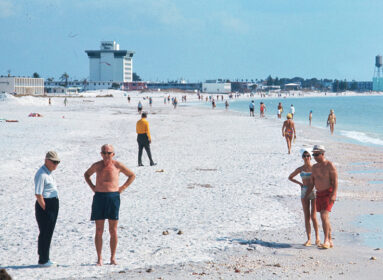
By Rabbi Stephen Lewis Fuchs
It was with some trepidation that I arrived at the regional Lutheran Pastor’s convention in the quaint German town of Preetz. I had been invited by Pastor Anke Wolff-Steger to keynote the convention with a sermon on the Garden of Eden. Because Pastor Wolff-Steger had invited me to preach on this topic at her church a year ago, she knew the gist of what I would say. The pastors in attendance did not, and I knew some would be taken aback.
I reviewed quickly the classical Christian interpretation (surely they did not need me for that) that Eden marked the “Fall of Man” – that we had everything we could possibly in the garden, but Eve ruined everything by eating of the Tree of Knowledge, the one tree from which God warned the first couple not to eat and then convincing Adam to eat as well. In so doing they plunged humanity into a state of sinfulness, but belief in the saving power of Jesus’ life, death on the cross, ascension to heaven and resurrection saves us from that degraded state.
It was a surprise to no one there, of course, when I said that Jews do not believe that. For traditional Jews eating from the Tree of Knowledge was a profound act of disobedience, and we live with the consequences, a life of limited duration, pain in childbirth and the need to work for a living. But we do not exist in a state of sinfulness, and therefore we have no need for Jesus to save us.

Rabbi Stephen Fuchs with Pastor Ursula Sieg, who translated his book into German, at the launch of the German edition on Sept. 3 at the Druckerwerk bookstore in Bad Segeberg.
Then I shared a perspective on Eden that I include in my book, What’s in It for Me? Finding Ourselves in Biblical Narratives, the essence of which I first learned from my beloved Bible professor at Hebrew Union College, Chanan Brichto, of blessed memory:
Eden was a nice place to visit but not to live. It was a world of no birth, no death and no sexuality. Indeed sexual knowledge is precisely the knowledge the first couple discovered when they ate of the Tree of Knowledge.
Eve is not the villain of the story but the heroine. She is not interested in an endless life of ease without challenge or purpose. Although she did not know what life outside the garden would be like, she was willing to risk that uncertainty for a life filled with meaningful achievement, satisfying relationships, and the ability to bring new life into the world.
I can relate. After a long year of work, I would love to visit Eden, a place where all my needs are provided and I can lie on a pristine beach with fresh ripe fruit hanging over my head. I would love it for about a week. After that I would seek out a challenge that would bring meaning to my life. That is how I imagine Eve felt when she chose to eat the fruit. We should see Eve as a hero whose bold action enables us all to live lives of meaning and purpose.
However differently we interpret the story of Eden, I concluded, we can agree on one thing: None of us live there any more. We all live in this imperfect world. Therefore, God calls on each of us to work as best we can to make the world a better place.
After breakfast we spent an hour studying the texts in small hevruta groups. I truly believe studying Torah or Bible together is one of the most productive and honest ways to experience inter-religious dialogue. As we studied one of the pastors challenged me: “How can you call Eve a hero when she defied a direct command from God?”
I responded that rather than a command, I see an admonition in the text that there would be consequences for eating from the tree and that Eve was willing to take the risk. I said I don’t believe this is the only reasonable interpretation of the story, but I think it is reasonable to give it some thought. Her response was a quizzical look, but as I left the gathering I noticed that she had purchased my book and had begun to look through it. I could not ask for more.
Rabbi Stephen Lewis Fuchs is the former president of the World Union for Progressive Judaism and rabbi emeritus of Congregation Beth Israel in West Hartford. His book is now available in audio format and has just been released in a German edition.







 Southern New England Jewish Ledger
Southern New England Jewish Ledger













